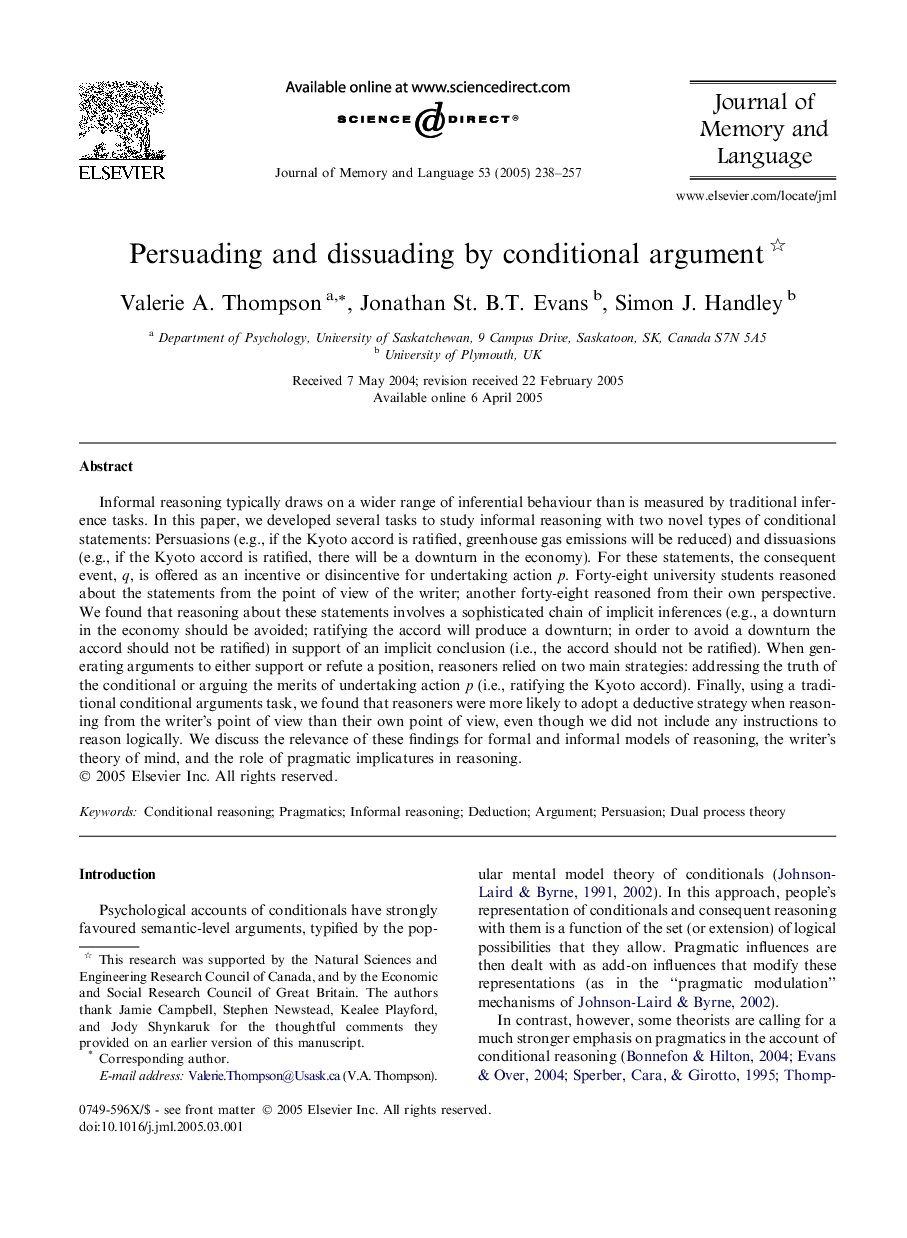| کد مقاله | کد نشریه | سال انتشار | مقاله انگلیسی | نسخه تمام متن |
|---|---|---|---|---|
| 10459801 | 923098 | 2005 | 20 صفحه PDF | دانلود رایگان |
عنوان انگلیسی مقاله ISI
Persuading and dissuading by conditional argument
دانلود مقاله + سفارش ترجمه
دانلود مقاله ISI انگلیسی
رایگان برای ایرانیان
کلمات کلیدی
موضوعات مرتبط
علوم زیستی و بیوفناوری
علم عصب شناسی
علوم اعصاب شناختی
پیش نمایش صفحه اول مقاله

چکیده انگلیسی
Informal reasoning typically draws on a wider range of inferential behaviour than is measured by traditional inference tasks. In this paper, we developed several tasks to study informal reasoning with two novel types of conditional statements: Persuasions (e.g., if the Kyoto accord is ratified, greenhouse gas emissions will be reduced) and dissuasions (e.g., if the Kyoto accord is ratified, there will be a downturn in the economy). For these statements, the consequent event, q, is offered as an incentive or disincentive for undertaking action p. Forty-eight university students reasoned about the statements from the point of view of the writer; another forty-eight reasoned from their own perspective. We found that reasoning about these statements involves a sophisticated chain of implicit inferences (e.g., a downturn in the economy should be avoided; ratifying the accord will produce a downturn; in order to avoid a downturn the accord should not be ratified) in support of an implicit conclusion (i.e., the accord should not be ratified). When generating arguments to either support or refute a position, reasoners relied on two main strategies: addressing the truth of the conditional or arguing the merits of undertaking action p (i.e., ratifying the Kyoto accord). Finally, using a traditional conditional arguments task, we found that reasoners were more likely to adopt a deductive strategy when reasoning from the writer's point of view than their own point of view, even though we did not include any instructions to reason logically. We discuss the relevance of these findings for formal and informal models of reasoning, the writer's theory of mind, and the role of pragmatic implicatures in reasoning.
ناشر
Database: Elsevier - ScienceDirect (ساینس دایرکت)
Journal: Journal of Memory and Language - Volume 53, Issue 2, August 2005, Pages 238-257
Journal: Journal of Memory and Language - Volume 53, Issue 2, August 2005, Pages 238-257
نویسندگان
Valerie A. Thompson, Jonathan St. B.T. Evans, Simon J. Handley,